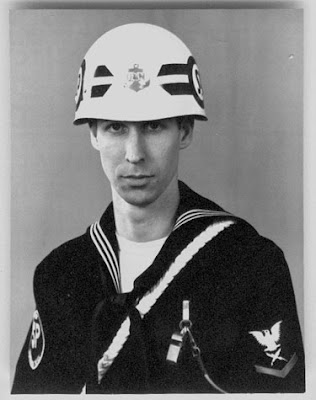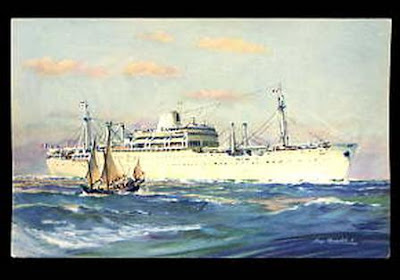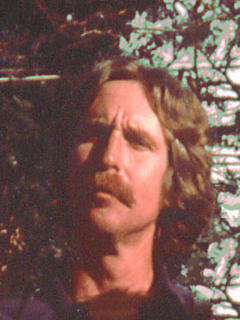Part two of N; Part one is here: ENERGY - PART I. Only today, instead of talking about electrons, we'll be talking about hydrocarbons. Now, hydrocarbons are an important part of the World Of Chemistry. In fact, hydrocarbons are the basis of an entire field of Chemistry know as... Organic Chemistry. Organic Chem, as well as being about hydrocarbons, and hydrocarbon-based compounds, is also the primary reason why a lot of Chemistry students switch to English Lit. Chaucer is easier than the Paraffin Series, which is the easy part of Organic. It's all downhill from there.
Fortunately, aside from the word hydrocarbon, we really don't need to know much more about this stuff. As an aside, it's interesting to note that hydrocarbon compounds actually 'own' many electrons! If we could tease them into giving them up, we'd be able to fill our tanks (well, I mean, the gas tanks in our cars - not the Abrams Tanks in the many war zones we have scattered about the Middle East), and then drive happily about using an electric motor! Sadly, it's not in the nature of the Chemical Bond to give us those electrons without a lot of effort! We have Linus Pauling's word for that, and, knowing that he has not one, but two, Nobel Prizes, you can believe he's smarter than we are! He's also deceased, so the whole idea of megadoses of vitamin C might not be as great as he believed.
But that's another story, as they say.
Now, at this juncture in history, when some of the more-or-less prominent politicians are campaigning for President (these campaigns are so unrelenting, it may well be that the next president has already been elected, and we're getting ready to nominate the candidates for 2012), everybody is talking a lot about how they are about to develop a PLAN! A plan that is, to a.) Save The Planet From Global Warmng or b.) Save The American Driver From Big Oil. Some of the more ambitious politicians are, I believe, trying to work both of those Big Ideas into their ahem, Plan.
Sorry, as my motto says; Good Idea, Too Bad It's Wrong!
The basis for all these wonderful plans is to swap out petroleum as the source for the hydrocarbons going into your (fuel) tank, and to use hydrocarbons from another source. A partial list of these sources: Corn; Sawgrass; Sugarcane; Oil Palms; Used Cooking Oil (from MacD et al.); Methane From Garbage; Methane From Cows (yes, cowfarts!); and that old standby, King Coal. Now, this can all be done. In fact, third world farmers have been using animal byproduct (ahem) as fuel for many centuries. Heck, the West was settled by wagon trains that cooked their way across the plains using Buffalo Chips. That was, of course, before they killed and ate all of the Buffalo.
Problem with all this is, nobody seems to want to consider the scale!
Let us consider the scale: About 500, 000, 000 (1/2 billion!) cars. Maybe more. Heck, there's 260 million cars in the USA alone (see below; Everybody's Getting...). The owners of these cars all want to fill their tanks (the fuel tanks, that is) with hydrocarbons. Aside from some not-entirely-unreasonable fear of engine damage, the car owners really don't give a big rat's ass where the damn hydrocarbons come from. However, the total volume, or weight, of all this fuel is staggering to contemplate! Billions And Billions of Litres! (Borrowing here from famous TV astro-evangelist Carl Sagan). All this stuff gets burned, no matter where it comes from. The burning produces CO2, H2O, CO, Oxides of Nitrogen, Ozone, partially combusted hydrocarbons, and small particulates (soot, actually). The operation also produces Heat, Light, Motion, Dented Fenders, and the occasional Dead Pedestrian.
The problem, actually, is that, given their druthers, most people seem to want to travel about accompanied by something like two tons of assorted metal, plastic, glass, rubber, and a smidgen of other stuff. A car is, emotionally speaking, a sort of cross between a Big, Powerful Destrier (Magnificent Huge Masculine Warlike Stallion, that is), and a Security Blanket (Warm, Soft, Feminine, Peaceful, Comforting, that is). It's quite often not the best way to travel from point A to point B; but What If I Need To Run An Errand? It's also not the healthiest way to travel (See: Everybody's Getting Fat Except...); but What If I Need To Pick Up The Kids? So, what's to be done?
Fortunately, aside from the word hydrocarbon, we really don't need to know much more about this stuff. As an aside, it's interesting to note that hydrocarbon compounds actually 'own' many electrons! If we could tease them into giving them up, we'd be able to fill our tanks (well, I mean, the gas tanks in our cars - not the Abrams Tanks in the many war zones we have scattered about the Middle East), and then drive happily about using an electric motor! Sadly, it's not in the nature of the Chemical Bond to give us those electrons without a lot of effort! We have Linus Pauling's word for that, and, knowing that he has not one, but two, Nobel Prizes, you can believe he's smarter than we are! He's also deceased, so the whole idea of megadoses of vitamin C might not be as great as he believed.
But that's another story, as they say.
Now, at this juncture in history, when some of the more-or-less prominent politicians are campaigning for President (these campaigns are so unrelenting, it may well be that the next president has already been elected, and we're getting ready to nominate the candidates for 2012), everybody is talking a lot about how they are about to develop a PLAN! A plan that is, to a.) Save The Planet From Global Warmng or b.) Save The American Driver From Big Oil. Some of the more ambitious politicians are, I believe, trying to work both of those Big Ideas into their ahem, Plan.
Sorry, as my motto says; Good Idea, Too Bad It's Wrong!
The basis for all these wonderful plans is to swap out petroleum as the source for the hydrocarbons going into your (fuel) tank, and to use hydrocarbons from another source. A partial list of these sources: Corn; Sawgrass; Sugarcane; Oil Palms; Used Cooking Oil (from MacD et al.); Methane From Garbage; Methane From Cows (yes, cowfarts!); and that old standby, King Coal. Now, this can all be done. In fact, third world farmers have been using animal byproduct (ahem) as fuel for many centuries. Heck, the West was settled by wagon trains that cooked their way across the plains using Buffalo Chips. That was, of course, before they killed and ate all of the Buffalo.
Problem with all this is, nobody seems to want to consider the scale!
Let us consider the scale: About 500, 000, 000 (1/2 billion!) cars. Maybe more. Heck, there's 260 million cars in the USA alone (see below; Everybody's Getting...). The owners of these cars all want to fill their tanks (the fuel tanks, that is) with hydrocarbons. Aside from some not-entirely-unreasonable fear of engine damage, the car owners really don't give a big rat's ass where the damn hydrocarbons come from. However, the total volume, or weight, of all this fuel is staggering to contemplate! Billions And Billions of Litres! (Borrowing here from famous TV astro-evangelist Carl Sagan). All this stuff gets burned, no matter where it comes from. The burning produces CO2, H2O, CO, Oxides of Nitrogen, Ozone, partially combusted hydrocarbons, and small particulates (soot, actually). The operation also produces Heat, Light, Motion, Dented Fenders, and the occasional Dead Pedestrian.
The problem, actually, is that, given their druthers, most people seem to want to travel about accompanied by something like two tons of assorted metal, plastic, glass, rubber, and a smidgen of other stuff. A car is, emotionally speaking, a sort of cross between a Big, Powerful Destrier (Magnificent Huge Masculine Warlike Stallion, that is), and a Security Blanket (Warm, Soft, Feminine, Peaceful, Comforting, that is). It's quite often not the best way to travel from point A to point B; but What If I Need To Run An Errand? It's also not the healthiest way to travel (See: Everybody's Getting Fat Except...); but What If I Need To Pick Up The Kids? So, what's to be done?






